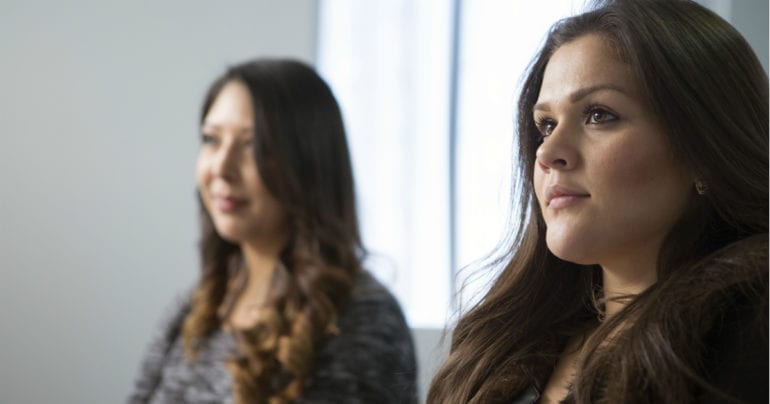A Psy.D. Clinical Psychology program can help unlock career options in professional practice, academia, and consultation. The Chicago School’s Clinical Psy.D. program is accredited by the American Psychological Association (APA), meeting standards to prepare students for professional licensure, depending on the campus and state you wish to practice. We have five campuses spread across the United States, increasing the convenience and flexibility for students seeking an opportunity to become a clinical psychologist or work in the field of psychology. These campuses are located in:
If you’re considering beginning this educational journey, you’re likely wondering what you can expect along the way. Read below to discover some of the things you can look forward to.
More clinical practice, less research
The doctorate of psychology (Psy.D.) was created as a practice-based alternative to the doctor of philosophy (Ph.D.), which historically prioritizes research. This is why you will find that generally speaking, Psy.D. Clinical Psychology programs are designed to advance a graduate’s understanding of how to provide tangible psychological services.
At The Chicago School Psy.D. Clinical Psychology programs follow the engaged-practitioner model, training primarily for field practice in combination with a secondary focus on scholarship. Additionally, students in these programs usually have the opportunity to choose major and minor areas of study, coupled with as many as three years of practicum to prepare for their APA-required internship.
The years spent in practicum provide essential hands-on experience for aspiring practitioners. Psy.D. programs offer this experience to better help prepare graduates for their clinical careers—something Ph.D. graduates often will not expect from their programs.
Expertise for the clinic and the classroom
Despite prioritizing practice, Psy.D. Clinical Psychology programs can still prepare students for a successful future in academia. It’s common for Psy.D. graduates to become adjunct professors in addition to their clinical practice. So, if you are worried that the Psy.D. Clinical Psychology program you are interested in may hinder you from entering academia, fear not! Psy.D. graduates can expect to apply their degrees in clinical practice, through teaching, or even do both.
4-6 years to complete the Clinical Psy.D. Program
Spending fewer years in the classroom is another thing to expect. In general, a Psy.D. Clinical Psychology program can take four to six years to complete.
At The Chicago School, for example, students can usually expect to spend about five years in the program, although this time can vary depending on each person’s specific circumstances. The time period also includes the APA-accredited internship.
Greater student accommodation
Psy.D. programs are generally able to admit more students than Ph.D. programs at other schools. This is because Psy.D. programs are often housed within schools concentrated on psychology, as opposed to schools that admit doctoral students to a wide range of programs.
The Psy.D. Clinical Psychology is The Chicago School’s legacy program. It was our first program ever offered in 1979, which has allowed us to expand our offering of accredited Psy.D. Clinical Psychology programs at campuses around the U.S. and provide greater access to this type of education to a wide range of applicants.
Prepare graduates for a career in clinical psychology
Students who begin and complete their educational journey at The Chicago School, earning their Psy.D. Clinical Psychology degree may lead to a career as a clinical psychologist. This program prepares students for licensure through clinical practice and evidence-based studies. Working as a clinical psychologist, you can promote optimal personality development, emotional health, and well-being in your clients, whether it is in a school, business, or medical facility, treating phobias, affective disorders, or more severe mental illnesses.
Graduates may pursue other careers in clinical psychology, such as becoming an organizational psychologist, marriage and family therapist, clinical psychology professor, psychotherapist, or researcher.
Learn more about The Chicago School
Are you interested in learning more about clinical psychology programs available at The Chicago School? Fill out the form below to request more information or you can apply today through our application portal.

